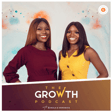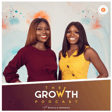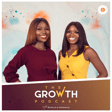
The Spirit of Excellence, High Agency and Shooting for Heaven with Joy David
In this episode, Bukola catches up with Joy David who shares her journey from growing up without many privileges to now creating and designing a life of excellence. Joy studied English Language at Obafemi Awolowo University and graduated with a first class. She transitioned into product management after leaving school and had a full ride scholarship from Standard Bank to study Management of Information System and Digital Innovation at London School of Economics where she graduated with a distinction. She now works as a Product Manager at GlobalCap. She loves travelling and is big on execution.
This episode is not one to miss.
Remember to use #TheGrowthPodcast on Twitter to share what you resonated with on this episode.
------------------------------------------------------------------
Follow Joy on LinkedIn and Twitter
------------------------------------------------------------------
Check out the new website layout - Growdiance
Join our mailing list to stay up to date on everything Growdiance - Join us
Send us your career dilemmas here.
------------------------------------------------------------------
Follow Bukola on LinkedIn, Twitter and Instagram
Follow Veronica on LinkedIn Twitter and Instagram
Follow Growdiance on LinkedIn, Twitter and Instagram
------------------------------------------------------------------
Remember to leave us a 5-star ⭐️ rating.


